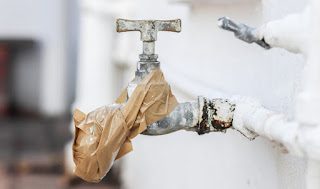DROUGHT LOOMS IN NAMIBIA
The
Southern African Development Community will receive normal to below normal
rainfall in the 2018-2019 farming season. Reports also say that Namibia will
continue to get warmer, with its most extreme prediction being an increase of 4
degrees by 2046.
Drought affects the environment in many different ways. Plants
and animals depend on water, just like people. When a drought occurs, their
food supply can shrink, and their habitat can be damaged; increase in disease
in wild animals, because of reduced food and water supplies.
WINDHOEK
– With the prolonged drought in Aminius Constituency in Omaheke Region, more
than 300 livestock have died as farmers watch their animals helplessly succumb
to famine. The deplorable situation has forced many farmers in the area to
relocate their animals to other constituencies as well as to other regions,
especially Otjozondjupa, for better grazing for farmers to save them from the
drought.
The
animals are in a very deplorable condition. The condition has not improved
because there is no assistance rendered yet. The farmers with little in the
pocket are importing grass all over Namibia. They drive and go get it because
animals are helpless now. The animals are dying, and many farmers have written
them off. The authorities declared a national disaster last month, and the
meteorological services in the southern African nation estimate that some parts
of the country are facing the deadliest drought in as many as 90 years.
It’s
no secret that the drought has taken a heavy toll on our economy. But, did you
know that the prolonged lack of rain can become a costly problem for your
assets as well, and that your insurance might not provide cover for
drought-related risks?
An
article in the Sunday Times makes readers aware that damage caused by drought
is not necessarily a claim that insurance companies pay. This is because their
policies are designed to protect against sudden and unforeseen events and not
gradual wear and tear caused by unremarkable weather conditions. To use a
recognizable example, a Car Insurance policy may repair, replace or compensate
a client after an accident or hijacking. But, they would unlikely bear the cost
of a mechanical failure or replacing wear and tear components of the vehicle. “When
it comes to their assets, it is strongly recommended that owners be aware of
the areas of their assets that can be impacted by water restrictions and have
measures in place that help prevent damage.
The
general principle in insurance is that policyholders should take all reasonable
care to safeguard and protect their assets. In fact, people should act as
though they are not insured. This premise also applies in a drought situation -
policyholders need to do whatever is reasonable and practical to minimize
damage when they have known about a situation like this,” an insurance expert
points out in the article.
Cape
Town has already implemented top level water restrictions and rationing as the
drought tightened its grip on several provinces. It’s said to be the worst
drought in recent memory affecting property owners and houseowners. While the
rationing system can be useful in helping to save water, turning the supply on
and off can cause pipes to leak or burst and lead to flooding, the article
warns. Most Assets and household related policies do not cover gradual damages
due to this type of flood; they do provide cover for natural disasters, so, for
example, if a storm suddenly destroys a part to your roof and your house and or
building is flooded, these policies might accept a claim for water damage,
depending on the extent of your coverage.
But,
should your pipes start to leak because of water rationing and cause damage to
your walls, ceilings or floors over time, your claim will be rejected since
this event was not sudden. That is why it’s so important that owners of assets-
and homeowners take all steps necessary to mitigate the risk. Under their contractual
obligations with their insurer, policyholders need to take all preventative
actions they can to protect their pool from the effects of drought. These
include covering the swimming pools to prevent water evaporation or switching
off the pump if the water level drops too low.
With
regards to gardens, Household Insurance or Building Insurance are unlikely to
pay for restoring any landscaping that has died because of persisting drought.
To maintain a healthy garden, it is recommended that homeowners apply alternative
irrigation such as collecting rainwater where possible, use grey water or even
install a borehole. Damage because of the drought is something for the
policyholders to address as part of the routine maintenance that goes along
with owning a home.
With
homeowners unable to fill up due to the water restrictions, the system, walls
and tiling of pools are at risk of damage if they are left exposed to sunlight.
Insurance companies will reject a claim for pool damage if was a long-standing
problem that could have been prevented.
Melanie Lambert ǀ
Personal Lines & Claims Manager

Comments
Post a Comment